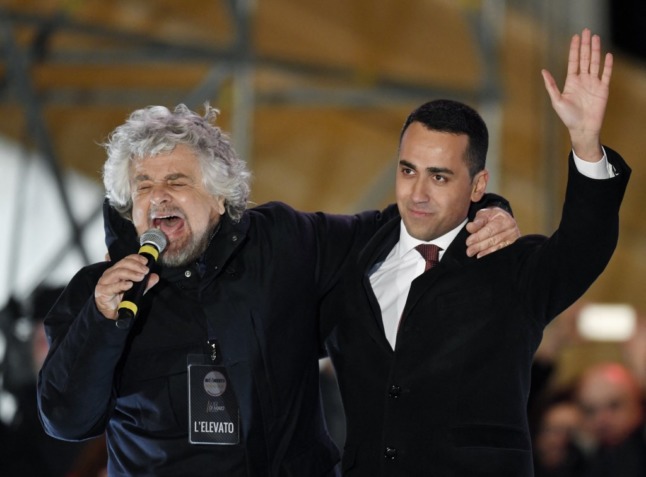A Naples court on Monday suspended changes to the party’s internal rules that allowed the election of former prime minister Giuseppe Conte as M5S leader last August.
The court had been asked to consider the case following complaints by Five Star supporters excluded from the leadership vote.
“We can’t deny it, the situation is very complicated,” Five Star founder Beppe Grillo – who would now appear to resume control – wrote in a Facebook message on Tuesday.
In 2018, the then proudly anti-establishment movement shook Italy and Europe by winning one-third of the vote and joining forces with the hard-right League party to create a populist government led by Giuseppe Conte, who supposedly a neutral choice agreed on by both parties.
READ ALSO: Italian foreign minister Di Maio seeks ‘freedom’ in party rift
Conte since became leader of the Five Star Movement, after his coalition government collapsed triggering a government crisis last year leading to the appointment of Mario Draghi.
Five Star remains the largest party in parliament and in power as part of Draghi’s own broad coalition, but is plagued by infighting and floundering in the polls ahead of elections planned for next year.
It has dropped from almost 33 percent of the vote four years ago to around 15 percent of public support in early February, according to an average compiled by the YouTrend institute.

Piergiorgio Corbetta, a professor at the University of Bologna, said the crisis was the inevitable consequence of internal tensions over those who want to fight the system and those who want power.
However, he said for now the disarray did not threaten Draghi’s coalition, just as Italy seeks to recover from the Covid-19 pandemic.
“Everyone is afraid of upsetting the house of cards,” Corbetta told AFP.
Gianfranco Pasquino, professor of political science at Bologna, agreed that the danger to the government was “limited”.
“The fact is that M5S remains divided but it’s not enough of a reason to bring down the government,” he said.
Conte had been increasingly at odds with Foreign Minister Luigi Di Maio, himself a former Five Star leader.
They clashed over the recent election of Italy’s president, a largely ceremonial but potentially influential position voted on by parliament.
At the weekend, Di Maio resigned from the Five Star’s steering committee in a bid to speak more freely about the direction of the party, suggesting further turbulence lies ahead.



 Please whitelist us to continue reading.
Please whitelist us to continue reading.
Member comments